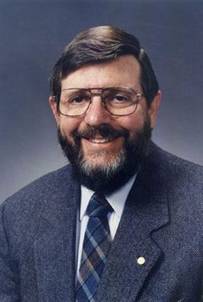讲座题目:Time, Einstein and the Coolest stuff in the universe
讲座时间:2016年4月9日下午16:00-18:00
讲座地点:科学馆101
报告人:William D. Phillips 美国国家标准和技术研究所、马里兰大学教授,1997年诺贝尔物理学奖获得者
摘要:At the beginning of the 20th century Einstein changed the way we think about Time. Now, at the beginning of the 21st century, the measurement of Time is being revolutionized by the ability to cool a gas of atoms to temperatures billions of times lower than anything else in the universe. Atomic clocks, the best timekeepers ever made, are one of the scientific and technological wonders of modern life. Such super-accurate clocks are essential to industry, commerce, and science; they are the heart of the Global Positioning System (GPS), which guides cars, airplanes, and hikers to their destinations. Today, the best primary atomic clocks use ultracold atoms, achieve accuracies better than a second in 300 million years, and are getting better all the time. Super-cold atoms, with temperatures that can be below a billionth of a degree above absolute zero, use, and allow tests of, some of Einstein's strangest predictions.
This will be a lively, multimedia presentation, including experimental demonstrations and down-to-earth explanations about some of today's most exciting science.
 报告人简介:Prof. William Daniel Phillips received his physics doctorate from the Massachusetts Institute of Technology in 1976. In 1978 he joined National Institute of Standards and Technology (NIST). In 1997, he shared the Nobel Prize in Physics, with Steven Chu and Claude Cohen-Tannoudji. Prof. William D. Phillips has studied and advanced the scientific art of supercooling atoms for trapping and examination. Cooling slows the speed of atoms' movements, and extreme cooling to near absolute zero allows the atomic structure of gases to be slowed and trapped without having the gas condense and liquefy or solidify. Phillips' results were so remarkable and far beyond what physicists thought would be feasible.
报告人简介:Prof. William Daniel Phillips received his physics doctorate from the Massachusetts Institute of Technology in 1976. In 1978 he joined National Institute of Standards and Technology (NIST). In 1997, he shared the Nobel Prize in Physics, with Steven Chu and Claude Cohen-Tannoudji. Prof. William D. Phillips has studied and advanced the scientific art of supercooling atoms for trapping and examination. Cooling slows the speed of atoms' movements, and extreme cooling to near absolute zero allows the atomic structure of gases to be slowed and trapped without having the gas condense and liquefy or solidify. Phillips' results were so remarkable and far beyond what physicists thought would be feasible.
Phillips has worked at the NIST for his entire career, and also was an adjunct professor at the University of Maryland College Park since 1992. In addition to his Nobel Prize winning work, he has studied atomic-gas Bose-Einstein condensates, atomic physics analogs of condensed matter systems, atoms in coherent deBroglie-wave atom optics, collisions of ultracold atoms, the magnetic moment of the proton in H2O, matter that exists only under extreme cold conditions, optical lattices, optical tweezers, quantum information with single-atom qubits, and ultracold Rydberg atoms and plasmas.